Weekly Reader: Yiddish Literary Siblings
In music there’s a concept called “blood harmony”—siblings or relatives who grew up singing together and are therefore able to harmonize better than other people. I don’t know if there’s a similar concept when it comes to literature, but there are plenty of sibling writers who vie with one another for prominence. In English, the brothers Henry and William James come to mind, as do the sisters Emily, Charlotte, and Anne Brontë. Yiddish too has its share of literary siblings, including the Reyzens (Zalmen, Avrom, and Sore) and, of course, the Singers—Israel Joshua, Isaac Bashevis, and Esther Kreitman. So, because it’s always interesting, we’re taking a look at this most famous Yiddish literary trio. Here’s to all of them!
—Ezra Glinter
Siblings and Their Stories
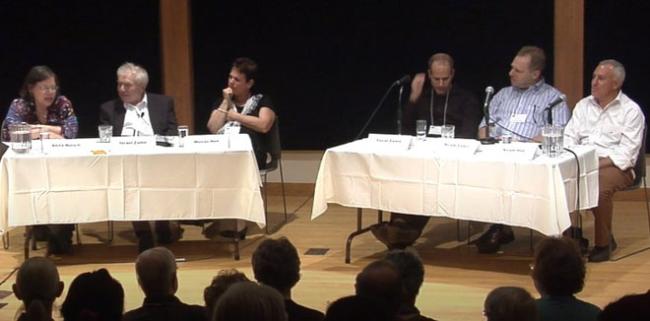
We would hardly be the first ones to notice the prominence of the Singer family in modern Yiddish literature, or the fact that, though overshadowed by the popularity and longevity of Isaac Bashevis, both I. J. Singer and Esther Singer Kreitman were significant Yiddish authors in their own right. In this series of lectures from 2013, literary scholar Anita Norich explores the three siblings’ different views of Jewish life and of Jews’ place in the world.
Big Brother

Although Isaac Bashevis would eventually go on to become the most successful Singer sibling, his career may have gone nowhere if not for the help of his already-successful older brother, I. J. It was thanks to Israel Joshua that Bashevis found work in Warsaw, at the literary publication Literarishe bleter, and later in America, at the Forverts. Of course, the older Singer was himself an accomplished novelist, with works like Yoshe Kalb and The Brothers Ashkenazi already under his belt by the mid-1930s. That latter book was one of our Great Jewish Book Club picks in 2018, and though you may have missed the chance to read it with the group, you can still benefit from our comprehensive collection of reading resources.
Big Sister
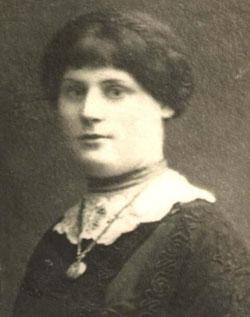
Although less famous than her two brothers, and later to begin writing, Esther Kreitman was actually the oldest of the siblings and had considerable influence on her two younger brothers; both of them used the events of her (rather unhappy) life in their own work. Despite the many obstacles she faced, and the fact that neither of her brothers seemed interested in her literary career, she eventually published several novels and short story collections, as well as translations into Yiddish. (She translated Bernard Shaw’s The Intelligent Woman’s Guide to Socialism and Capitalism two years after it was published.) Most of her work can now be found in English translation, but you can also access the Yiddish originals in our Steven Spielberg Digital Yiddish Library.
Nobel Laureate
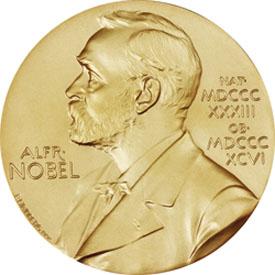
Among Isaac Bashevis Singer’s many laurels was, of course, the Nobel—he was the only Yiddish writer ever to win that prize. While it was a personal triumph, it was also a triumph for the entire Yiddish world, who celebrated the honor as their own. In this recording from the Montreal Jewish Public Library we can hear how that community celebrated, with speeches by literary critic Mordecai Husid (in Yiddish) and a young Ruth Wisse (in English). Separately, there’s also a recording of Bashevis himself, speaking in Montreal at the 1982 World Conference on Yiddish.
Listen to Ruth Wisse and Mordecai Husid talk about Bashevis’s Nobel win
Listen to Isaac Bashevis Singer at the World Conference on Yiddish
Bashevis, Reappraised
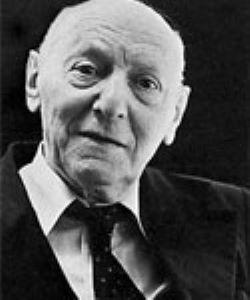
Not everybody was so pleased by Bashevis’s popularity. Many in the Yiddish world thought that the Nobel should have gone to a writer like Chaim Grade, or even I. L. Peretz, though the latter was long dead. In this thoughtful reappraisal of Bashevis’s work, Yiddish Book Center President Aaron Lansky looks back at the controversy surrounding Bashevis’s work in the 1970s and how those reactions look several decades on.
Father and Son
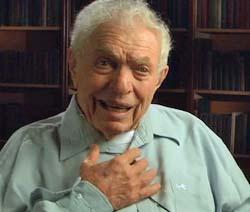
Bashevis may have achieved fame and fortune as a writer in the United States, but he was less successful in his family life. His only son, Israel Zamir, grew up estranged from his father in Israel and only got to know Bashevis later in life. In this oral history interview, he talks about some of his earliest memories of his father and about their emotional reunion in New York many years later.
